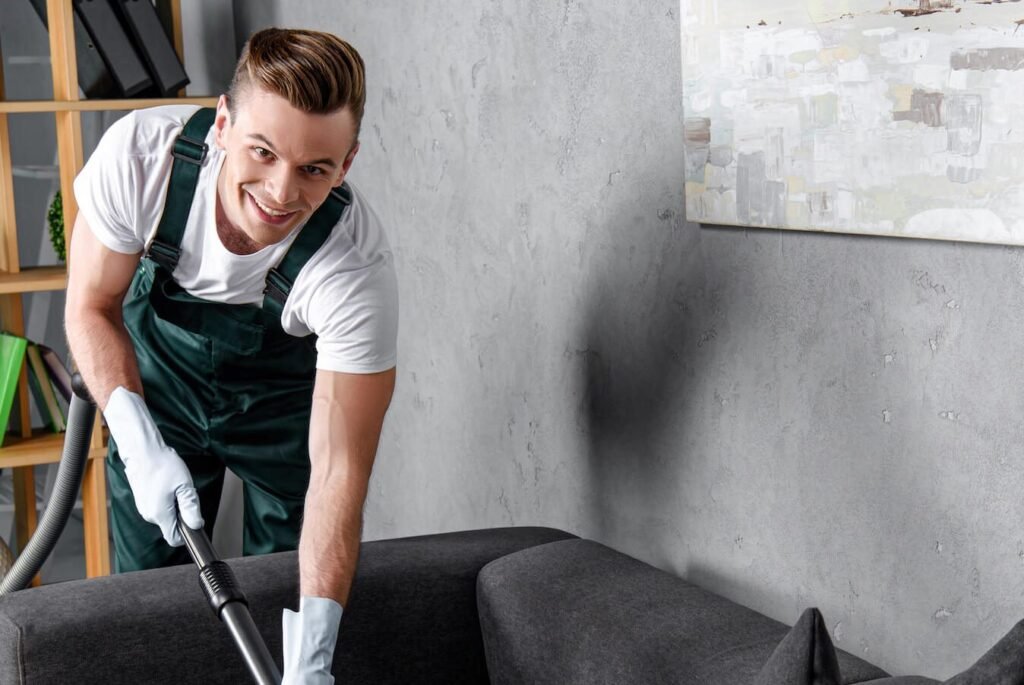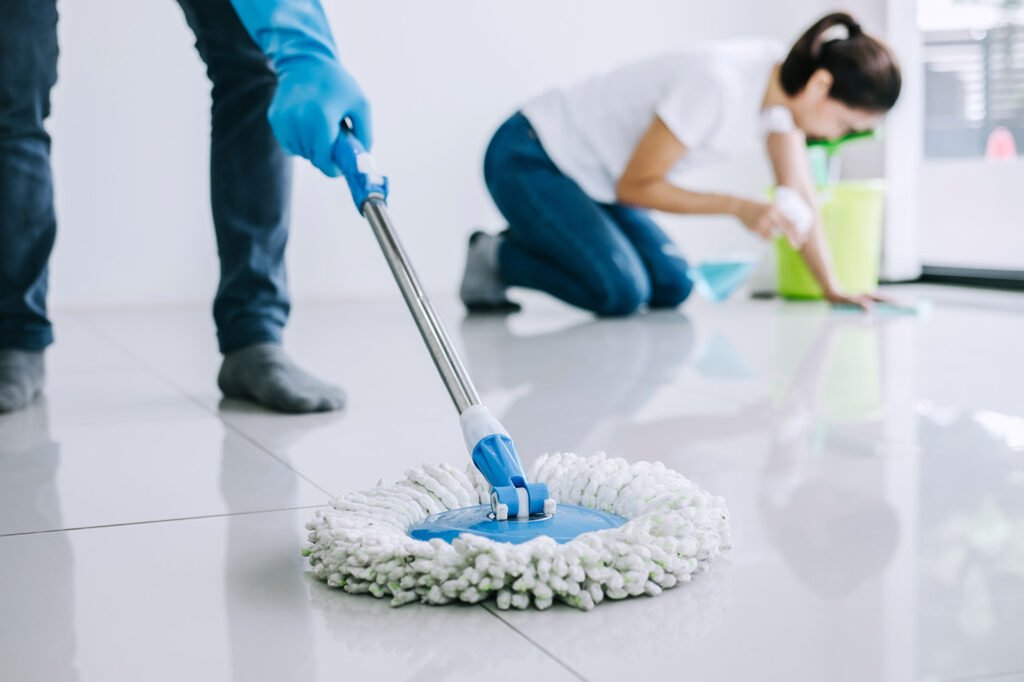
How to Choose the Right Hoover for Your Home: A Complete Guide
When it comes to keeping your home clean, one of the most essential tools in your arsenal is a reliable hoover. With so many vacuum cleaners on the market, selecting the right one for your home can feel overwhelming. Do you need a powerful upright hoover for carpeted floors? Or a lightweight cordless vacuum for quick cleanups? Understanding the different types of vacuums, their features, and your home’s unique needs will help you make the best choice.
In this blog, we’ll guide you through the key factors to consider when choosing the right hoover for your home.
1. Consider Your Home’s Flooring
The type of flooring in your home plays a big role in determining which vacuum is best suited for your needs. Different hoovers are designed to work better on certain surfaces, whether it’s plush carpets or hard floors.
For Carpeted Floors
If your home is mostly carpeted, look for a vacuum with strong suction power and a rotating brush or beater bar to pull dirt and dust out of carpet fibers. Upright vacuums or canister vacuums with motorized brush rolls are typically the best options for deep-cleaning carpets.
For Hardwood, Tile, or Laminate Floors
For homes with hardwood, tile, or laminate flooring, you’ll want a vacuum that can clean thoroughly without scratching the surface. Stick vacuums or canister vacuums with soft bristle attachments are perfect for delicate floors. Some vacuums also have special settings to switch between carpet and hard floor modes.
Mixed Flooring
If you have a mix of flooring types, consider a multi-surface vacuum that offers adjustable settings or interchangeable attachments to seamlessly switch between carpets and hard floors.

2. Understand the Different Types of Hoovers
Upright Vacuums
There are several types of hoovers available, each designed for different cleaning needs and preferences. Here’s a quick breakdown of the most common types:
- Best for: Large, carpeted areas.
- Pros: Powerful suction, wide cleaning path, built-in brush roll for deep cleaning.
- Cons: Can be bulky and heavy, not ideal for tight spaces or stairs.
Canister Vacuums
- Best for: Multi-surface cleaning, including carpets, hard floors, and stairs.
- Pros: Versatile with various attachments, great for cleaning under furniture and in tight spaces.
- Cons: Can be harder to store, requires dragging the canister around.
Stick Vacuums
- Best for: Quick cleanups, smaller homes, or homes with mixed flooring.
- Pros: Lightweight, easy to maneuver, often cordless, ideal for hard floors and low-pile carpets.
- Cons: Less powerful than uprights, smaller dustbin capacity.
Robot Vacuums
- Best for: Automated, hands-free cleaning on hard floors or low-pile carpets.
- Pros: Convenient, time-saving, can be scheduled to clean automatically.
- Cons: Limited suction power, not ideal for deep cleaning or high-pile carpets.
Handheld Vacuums
- Best for: Spot cleaning, upholstery, cars, or tight spaces.
- Pros: Portable, lightweight, perfect for small messes or quick cleanups.
- Cons: Not suitable for large areas or full-home cleaning.

3. Think About Your Home’s Size and Layout
The size of your home and its layout should influence your choice of vacuum. A larger home with multiple levels may require a more robust, powerful hoover, while a smaller space might benefit from something lightweight and easy to store.
For Larger Homes
An upright or canister vacuum is often the best option for large homes, as these vacuums have stronger suction and larger dustbin capacities, reducing the need to stop and empty the vacuum frequently. If you have multiple floors, you may want to consider a vacuum that’s not too heavy, or one with easy portability features.
For Smaller Homes or Apartments
In smaller spaces, a stick vacuum or handheld vacuum might be ideal. They’re easy to store and can quickly clean small areas without taking up much space. Cordless models are particularly useful in smaller homes where outlets might be limited.
4. Do You Have Pets?
If you have pets, choosing the right vacuum is even more critical. Pet hair, dander, and dirt tracked in from outside can quickly accumulate, making it important to find a hoover that can handle the extra mess.
Look for Pet-Specific Features
Many vacuums are designed specifically for homes with pets. Look for models with strong suction power, specialized pet hair attachments, and HEPA filters, which trap allergens like pet dander. Pet hair can get tangled in brush rolls, so consider a vacuum with a tangle-free brush or one that makes it easy to clean out hair.
5. Consider Filtration Systems
A vacuum’s filtration system is an essential factor, especially if anyone in your household suffers from allergies or asthma. The right filtration system can improve air quality by capturing dust, pollen, and other allergens.
HEPA Filters
If air quality is a concern, opt for a hoover with a HEPA (High-Efficiency Particulate Air) filter. These filters can trap up to 99.97% of particles, including dust, pet dander, and allergens, making them an excellent choice for homes with allergy sufferers or pets.
Bagged vs. Bagless
- Bagged vacuums typically have better filtration and are ideal for allergy sufferers because they trap dust inside the bag, which is disposed of when full.
- Bagless vacuums are more convenient and environmentally friendly, as you don’t need to buy replacement bags, but they can release dust back into the air when emptied.

6. Corded vs. Cordless
Cordless vacuums offer flexibility and ease of use, but corded vacuums generally provide more consistent power and don’t need to be recharged.
Corded Vacuums
- Pros: Stronger suction, no time limit on cleaning as they don’t rely on battery life.
- Cons: Limited by cord length, can be cumbersome to move from room to room.
Cordless Vacuums
- Pros: Portable, easy to maneuver, no need to worry about power outlets.
- Cons: Limited battery life, may need recharging during larger cleaning sessions.
7. Weight and Ease of Use
The weight of a vacuum can significantly impact its ease of use. If you have multiple floors, you’ll want a vacuum that’s easy to carry up and down stairs. Similarly, if you have mobility issues or simply want a vacuum that’s easier to maneuver, choose a lighter model.
Stick vacuums and some upright models are lightweight and easy to handle, while canister vacuums and heavy-duty upright models can be more challenging to move.
8. Budget and Long-Term Costs
Vacuums come in a range of price points, from budget-friendly options to high-end models. While it’s tempting to go for the cheapest option, it’s important to consider long-term costs such as replacing bags, filters, or batteries. Investing in a slightly more expensive vacuum with durable parts and a good warranty can save you money in the long run.
Conclusion
Choosing the right hoover for your home comes down to understanding your specific needs. Think about your flooring, household size, and any special considerations like pets or allergies. Whether you need a powerful upright vacuum for deep cleaning or a lightweight cordless option for quick cleanups, there’s a hoover out there that’s perfect for you.




